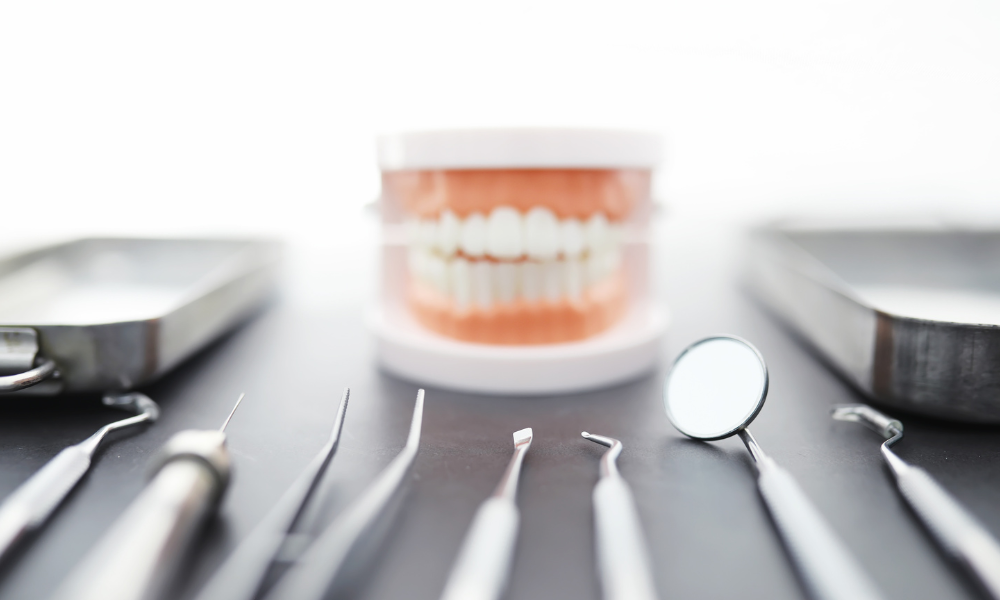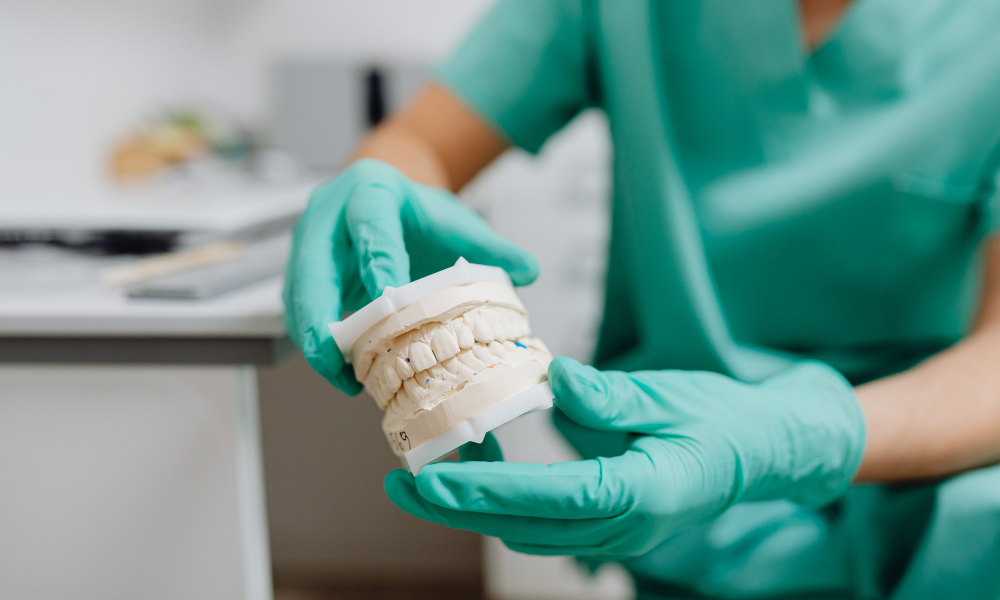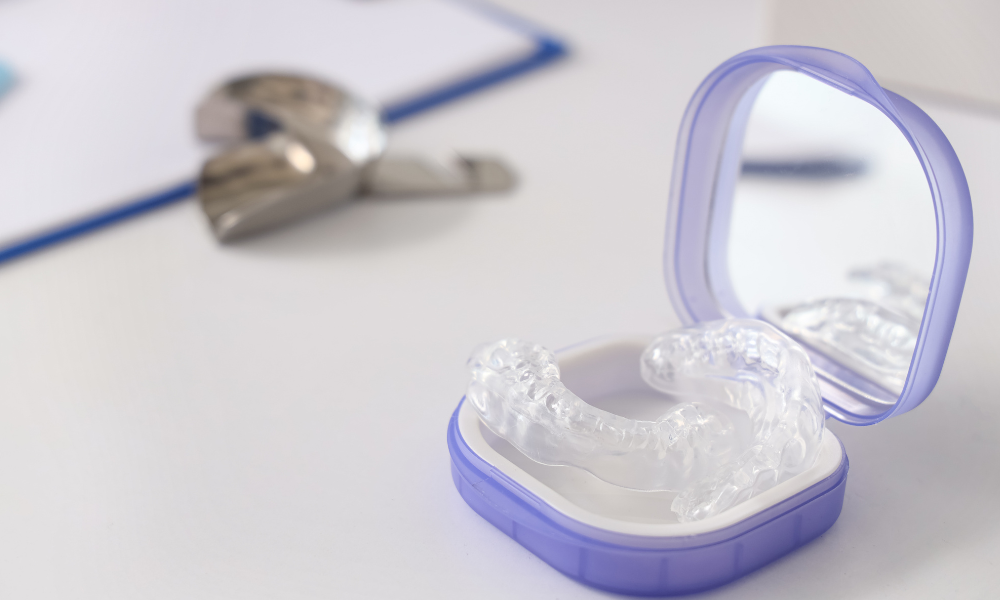
In the quest for improved management and treatment of sleep apnea and temporomandibular joint (TMJ) disorders, one therapy that has gained increased attention and recognition is myofunctional therapy. This specialized approach aims to address the root causes of sleep apnea and TMJ disorders by improving the function and strength of the facial and oral muscles. Many patients have discovered relief from symptoms and improved health through the incorporation of myofunctional therapy into their treatment plans.
At Columbia Center for Sleep Apnea and TMJ, Dr. Jared Bloxham, the region’s orofacial pain specialist, is committed to offering comprehensive care for sleep apnea and TMJ disorders. We understand the potential benefits of myofunctional therapy and are dedicated to helping our patients explore this treatment method to achieve more effective and lasting symptom relief. In this blog post, we will delve into the role of myofunctional therapy in treating sleep apnea and TMJ disorders, the techniques used in this treatment approach, and the potential benefits for patients who incorporate this therapy into their care.
Sleep apnea is a prevalent sleep disorder characterized by repeated pauses in breathing during sleep, which can lead to poor sleep quality, reduced oxygen levels, and a multitude of health complications if left untreated. Conversely, TMJ disorders involve conditions affecting the temporomandibular joint, which connects the lower jaw to the skull, resulting in pain, discomfort, and limited jaw function. Both sleep apnea and TMJ disorders can significantly impact an individual's overall well-being, making it essential to find effective treatment options.
Myofunctional therapy is a non-invasive approach that helps retrain and strengthen the muscles within the mouth, tongue, and throat. By addressing dysfunctions in these muscle groups, myofunctional therapy can tackle the underlying issues contributing to sleep apnea and TMJ disorders, helping to alleviate symptoms and restore optimal function.
1. Understanding Myofunctional Therapy Techniques
Myofunctional therapy encompasses a series of exercises and techniques aimed at improving the strength, coordination, and function of the facial and oral muscles. Working with a certified myofunctional therapist, patients learn to perform these exercises consistently and effectively, targeting the specific muscle groups responsible for their sleep apnea or TMJ disorder symptoms. Some common myofunctional therapy exercises include:
- Tongue strengthening exercises: These exercises focus on increasing the strength and coordination of the tongue, helping to eliminate habits like tongue thrusting, which can contribute to sleep apnea and TMJ disorders.
- Facial muscle exercises: By targeting specific facial muscles, these exercises can help improve jaw alignment, decrease muscle tension, and promote better breathing patterns during sleep.
- Swallow training: Proper swallowing technique is essential for optimal oral and facial muscle function. Swallow training involves retraining the muscles involved in swallowing to promote better muscle coordination and reduce potential irritation to the temporomandibular joint.
- Breathing exercises: Focusing on proper diaphragmatic breathing can help increase oxygen intake during sleep and promote relaxation, both of which can be beneficial for individuals with sleep apnea and TMJ disorders.
2. The Benefits of Myofunctional Therapy for Sleep Apnea
Myofunctional therapy can be particularly beneficial for individuals with sleep apnea, as it addresses the underlying causes of airway obstruction during sleep. By strengthening the muscles responsible for maintaining an open airway, myofunctional therapy can help prevent the collapse of the airway during sleep, leading to more restful and uninterrupted sleep. Improved muscle function not only alleviates the primary symptoms of sleep apnea, such as snoring and disrupted breathing patterns but also helps to reduce associated health risks, including daytime sleepiness, cognitive impairments, and cardiovascular complications.
3. The Benefits of Myofunctional Therapy for TMJ Disorders
For individuals living with TMJ disorders, myofunctional therapy can offer significant relief by addressing the muscle imbalances and tension that often contribute to TMJ pain and discomfort. By improving facial and oral muscle strength and coordination, myofunctional therapy can help correct improper jaw alignment, decrease muscle strain, and promote optimal jaw function. As a result, patients who undergo myofunctional therapy for TMJ disorders often experience reduced pain, improved jaw mobility, and better overall quality of life.
4. Integrating Myofunctional Therapy into a Comprehensive Treatment Plan
While myofunctional therapy can be valuable on its own, it is often most effective when integrated into a comprehensive treatment plan that addresses the various factors contributing to sleep apnea and TMJ disorder symptoms. By incorporating myofunctional therapy alongside other treatments, such as lifestyle modifications, oral appliance therapy, or physical therapy, patients can benefit from a multifaceted approach that targets the unique needs of their specific condition. This comprehensive approach ensures that patients receive the most targeted and effective care possible, ultimately resulting in improved symptom management and better long-term outcomes.
Conclusion
Myofunctional therapy offers an innovative and non-invasive approach to treating sleep apnea and TMJ disorders, focusing on improving muscle function and addressing the root causes of these conditions. By integrating myofunctional therapy into a comprehensive treatment plan, patients can achieve lasting relief from symptoms and improved overall quality of life.
At Columbia Center for Sleep Apnea and TMJ, Dr. Bloxham is committed to providing each patient with customized care that addresses their unique needs and concerns. If you're struggling with sleep apnea or TMJ disorder symptoms, contact us today to schedule a consultation and discover if myofunctional therapy is the right fit for your treatment plan. Together, we can help you achieve better sleep, improved jaw function, and greater overall well-being. Learn more about our
TMJ treatment in Richland!











